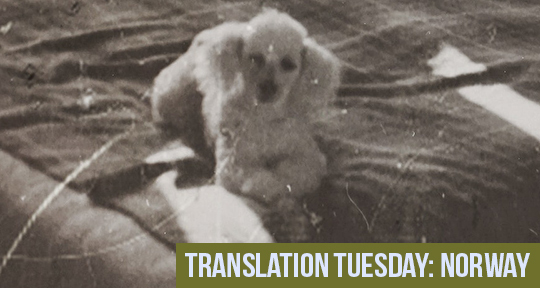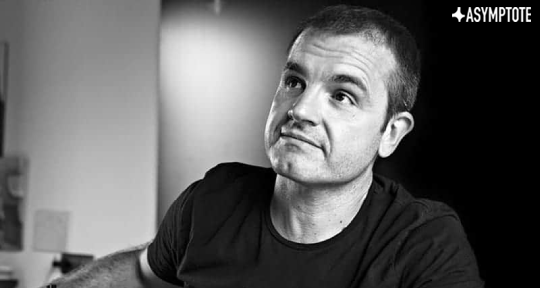ana c. buena by Valeria Román Marroquín, translated from the Spanish by Noah Mazer, Cardboard House Press, 2024
In his manifesto of New Brazilian Cinema, “An Esthetic of Hunger,” filmmaker Glauber Rocha called for art that communicates the poverty and misery of Latin America, and that could contribute to liberating the region from the “debilitating delirium of hunger.” He wrote this in 1964, at a time of global upheaval when Latin American cultural circles began to grapple with the torment of those left behind by globalization. Sadly, today, sixty years later, Latin America remains one of the most economically unequal regions on Earth. Decades-long neoliberal developmentalism keeps failing at what it—allegedly—has set out to do: eradicating the entrenched social disparities of the region. Instead, inequality only intensifies. The World Inequality Database reports that in 2020, the top 10% of Latin America owned 77.6% of the region’s wealth, a 2% increase from the 75.6% reported in 2000. The trend of increasing inequality is not unique to Latin America, but it is particularly extreme there. In Europe, the top 1% share of wealth rose from 24.9% in 2000 to 25% in 2020, while in the United States it increased from 32.0% to 34.9% in 2020. Capitalism confirms—time and time again—the falsehood of its mythical self-conception as a system that bolsters the progressive enrichment of everyone. Responding to this context, different Latin American groups have, of course, questioned the region’s unequal social conditions, calling for justice and change. In 2011, thousands of Chilean students dressed up as zombies in massive protests against educational debt and the privatization of public universities. More recently, Latin American women have taken to the streets in yearly Women’s Strikes to demand the recognition of care work as unpaid labor and to protest rising femicide numbers. Their demands for justice and their achievements are sources of light in an otherwise darkening global political landscape, and literary communities have taken up the same fight. The book ana c. buena, a 2021 poetry collection by the Peruvian poet Valeria Román Marroquín, presents a critique of capitalism that highlights its disastrous impact on the daily lives of working women. Indeed, the book’s main figure—Ana C. Buena, a woman under precarious and insecure work conditions—also functions as an allegory of the countries wounded by historical colonialism, current neocolonialism, and insatiable global capital. READ MORE…







Translation Tuesday: “The Lost Spell” by Yismake Worku
Now I am only a sorrier version of the dog that traversed through the forest with the grace of a cheetah.
For this week’s Translation Tuesday, visionary novelist Yismake Worku adopts fantasy and satire as probing social commentary in this excerpt from The Lost Spell. While researching a book of spells, a wealthy man transforms himself into a dog. We follow the (now) canine protagonist as he journeys to Addis Ababa, and through his eyes we witness the sublime beauty of the Ethiopian landscape. The story of one man’s literal dehumanization allegorizes the abasement our narrator witnesses around him as he simultaneously lauds and laments his country. Through the narrator’s unique position as both subjective participant and objective bystander, Worku presents a fly-on-the-wall (or a dog-on-the-road) view of contemporary Ethiopia that is at once a critique and a bittersweet love letter.
It has been a horrible few days. I feel like some life has been drained from my short dog existence. If I hadn’t managed to drag myself into the middle of a corn farm, I would have been picked apart by merciless scavenging birds.
The cause of my pitiful circumstances was an auto-rickshaw accident. If the God of dogs and all creation hadn’t spared me, I would have departed my dog life by now. The rickshaw didn’t hit me full on; it knocked me on my left rear, bending me like a rubber and causing me to plunge into a drain. An unseasonal rain had been pouring down all evening. So, the flood could have carried an elephant, let alone a battered dog. It hauled me along the garbage of Shashemene. Banging me around with every object it carried along, the flood finally threw me into a small river. The river in turn dragged me through shrubs, sometimes battering me against rocks, and deposited me near a cornfield. READ MORE…
Contributor:- Bethlehem Attfield
; Language: - Amharic
; Place: - Ethiopia
; Writer: - Yismake Worku
; Tags: - allegory
, - amharic
, - ethiopia
, - satire
, - social commentary